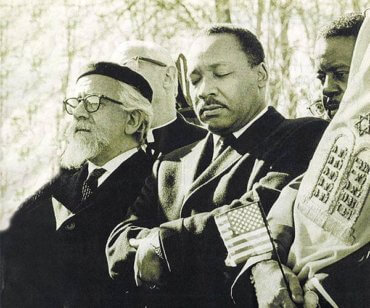
When Are We Allowed to Publicize a Problem in The Orthodox World?
Dear Jew in the City-
There seems to be a discomfort about airing our dirty laundry in the Orthodox world. When are we allowed to publicize a problem?
Thank you,
P.T.
Dear P.T.-
Thanks for your question. You are no doubt aware that there is a very serious prohibition called lashon hara (evil speech). This prohibition appears many places in the Torah, for example Leviticus 19:16, “Do not go about as spreading gossip among your people….” Psalms 34:13-15 famously tells us, “Who is the one who desires life, who loves days to see goodness? Guard your tongue from evil and your lips from speaking deceitfully. Shun evil and do good, seek peace and pursue it.” The phrase “One who desires life” (“Chofetz Chaim”) is the name of a famous work on lashon hara, and the author of that work, Rabbi Yisroel Meir HaKohein Kagan (d. 1933) has become known as “The Chofetz Chaim.”
Lashon hara is speech that is derogatory (even if it isn’t harmful) or harmful (even if it isn’t derogatory). An example of “harmful even if it isn’t derogatory” is as follows: Let’s say that your prospective spouse hates the color green. It would be lashon hara for me to tell that person that you drive a green car even though there’s nothing inherently wrong with that.
Even hinting at something without saying anything outright is lashon hara. If Joe Appel is late for work, it would be lashon hara for me to say to a colleague in earshot of the boss, “Do you have any apples?” knowing that this would make the boss realize that Appel is late, getting him in trouble.
There are many defenses that people use to justify speaking lashon hara, but they really don’t work. “It’s just a joke” is one of the most popular but by far the most common is “But it’s true!” Of course it’s true! Lashon hara is by definition true. If it’s not true, it’s called motzi sheim ra (spreading a bad name). Lashon hara (gossip) is bad but motzi shem ra (slander) is even worse.
There are, however, times where it’s permitted, or even appropriate, to speak lashon hara, such as when asked for a reference or to protect others from being defrauded. Rabbi Dr. Asher Meir, AKA “the Jewish Ethicist,” took the Chofetz Chaim’s parameters for evaluating permitted speech and turned them into an alphabetic mnemonic. (The following ABC’s are Rabbi Dr. Meir’s but the explanations of them are in my words rather than his.) If you want to say something negative, you must ensure:
Accuracy – that the information is being presented without exaggeration or bias;
Benefit – that revealing the information is the only means to some constructive end;
Certainty – we must know the information for a fact and not relate mere gossip;
Desire – our motivations must be pure, not tainted by an interest in disparaging the subject;
Equity –revealing the information must not cause an undeserved degree of consequences to the subject.
So, now to your scenario. “When are we allowed to publicize a problem?” It depends. What’s the problem? Why do you want to publicize it? If the problem presents a potential hazard to the community, that would certainly pass the “benefit” test but is the information accurate? Are you certain about it? Will the repercussions to the alleged offender be equitable? Are your motivations sincere? If all of this is so, then speaking up may be a go. But a piece of information has to pass all of the tests before it can be revealed – four out of five doesn’t cut it. (If you have what you think is important information but you aren’t sure whether it’s permitted to reveal it, don’t take the law into your own hands; ask your rabbi.)
The second half of Leviticus 19:16 – the verse that teaches us about lashon hara – tells us “do not stand idly by the blood of your neighbor.” We’re not allowed to gossip but when there’s a question of safety, or to protect others from harm, we have to speak up. But there’s dirty laundry and there’s dirty laundry. Not everything we want to reveal has a constructive purpose or equitable consequences. Sometimes we just want to build ourselves up by knocking others down. That’s certainly not okay. Nor is it okay to ruin people’s lives or relationships based on gossip, rumor and innuendo.
So, yes, some people are too hesitant to speak up when they should but others are too quick to speak when they shouldn’t. Neither of these is a good thing. We have to strike that balance between not going about spreading gossip and not standing idly by when others are in danger. Ignoring either part of the verse is bad for society.
Sincerely,
Rabbi Jack Abromowitz
JITC Educational Correspondent
Follow Ask Rabbi Jack on YouTube
EDIT: An astute reader commented, “Overall a good article, but one small problem. Sincerity of motive is not relevant in cases of protecting others from harm.” Actually, it is and it isn’t. Yes, saving someone from imminent danger takes priority over all other concerns but problems arise because humans don’t see the world objectively. Consider how people will call for the ouster of political rivals over the smallest infraction while defending those who share their own viewpoints against much stronger charges. We’re quick to assume the best of people we like and the worst of those we don’t. Sincerity is important because ulterior motives color our perceptions of reality. If we don’t like someone – either personally or because of his religious affiliation or whatever – we can convince ourselves of the worst based on the flimsiest of evidence (or no evidence at all) simply because it suits our purposes. But yes, if someone is in real potential danger, safety absolutely does come first. The discussion of people in danger was incidental here to the greater idea of “dirty laundry” but it is the focus of this article, where it is addressed more specifically.
If you found this content meaningful and want to help further our mission through our Keter, Makom, and Tikun branches, please consider becoming a Change Maker today.







